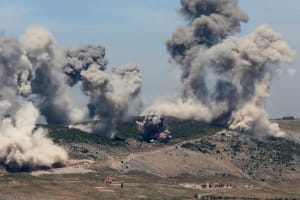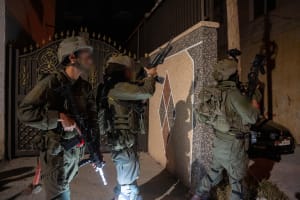Preemptive strike? Israel weighs options as Iran vows imminent revenge

As the world braces for a potential Iranian attack on Israel, a surprising question emerges: Could Israel strike first?
The latest crisis erupted after Hamas leader Ismail Haniyeh was assassinated in Tehran during the inauguration of Iran's newly-appointed president, Masoud Pezeshkian. Iran, furious at this brazen act on its soil, has vowed swift and severe retaliation against Israel, whom it blames for the killing.
But while all eyes are on Iran's next move, Israel appears to be considering a bold and risky strategy of its own. In a high-stakes gathering, Israel's top brass convened on Sunday to strategize against looming threats. Israeli Prime Minister Benjamin Netanyahu huddled with key security figures, including Defense Minister Yoav Gallant, IDF Chief Herzi Halevi, Mossad Director David Barnea, and Shin Bet chiefRonen Bar. The urgent meeting focused on bracing for potential strikes from Iran and its formidable Lebanese proxy, Hezbollah.
This comes on the heels of two audacious assassinations that have rocked the region. Within days, Hezbollah's military mastermind Fuad Shukr was eliminated in Beirut, followed swiftly by the shocking killing in Tehran. Iran, seething over Haniyeh's death on its soil, has pointed the finger squarely at Israel and promised swift vengeance.
These bold strikes have dramatically raised the stakes in an already volatile Middle East, with Israel now on high alert for retaliatory action in the coming days or weeks.
Even with matching intelligence, Israel might hesitate. The United States believes Iran hasn't finalized its attack plans or fully coordinated with regional allies, adding uncertainty to the situation.
Israeli military experts see a silver lining in the current crisis. Unlike Iran's surprise attack last April, Israel now has advance warning. This extra time could prove crucial in bolstering defenses, even if Iran plans a larger assault.
Despite the tension, Israeli officials project confidence. They point to last April's successful defense when Israel and its allies intercepted 99% of Iran's missiles and drones. They believe they can repeat this feat if necessary.
Meanwhile, diplomats are working overtime to defuse the situation. Jordan's foreign minister made an urgent trip to Tehran, pleading for regional stability. However, recent assassinations attributed to Israel have only heightened Iran's resolve for retaliation.
U.S. Secretary of State Antony Blinken has raised the alarm, warning that an Iranian attack could come within days. He is rallying world leaders to prepare, while the U.S. bolsters protection for Israel and its regional forces.
Adding to the powder keg, Israel and Hezbollah continue near-daily exchanges of fire on the Lebanon border, with Hezbollah threatening to expand its attacks deeper into Israel.

The All Israel News Staff is a team of journalists in Israel.
You might also like to read this:














